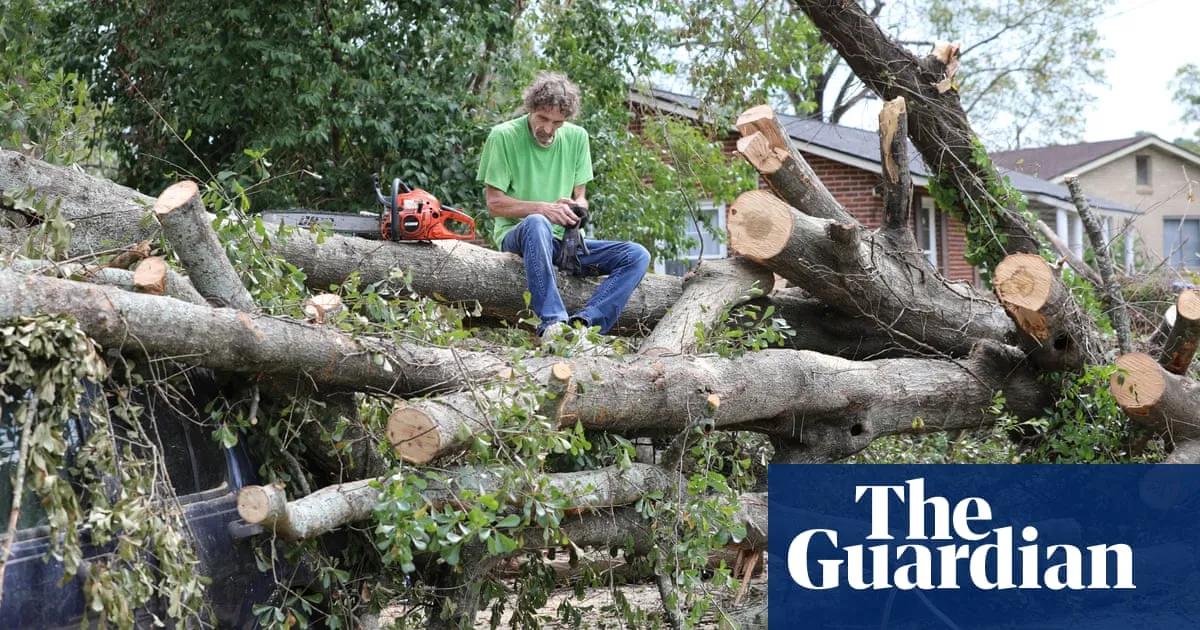
In the early hours of Friday, September 27, 2023, Hurricane Helene made landfall in Big Bend, Florida. Meteorologists from the National Hurricane Center had been closely monitoring the storm as it intensified, moving from Nicaragua up past Grand Cayman, Cancún, and Cuba. In anticipation of the storm’s potential impact, Georgia's Governor, Brian Kemp, declared a state of emergency on the preceding Tuesday. “The current forecast for Hurricane Helene suggests this storm will impact every part of our state,” Kemp stated. However, residents in Augusta, located in the eastern part of Georgia, felt a sense of security, having not experienced a hurricane in nearly a century, and believed the storm would pass them by.
To the surprise of many, Hurricane Helene took a sharp turn north-northeast and accelerated toward Augusta. The storm struck the city with winds exceeding 100 miles per hour, overwhelming the anemometers at the Augusta airport, which ceased functioning at 82 mph, coinciding with widespread power outages. The National Weather Service reported that Augusta found itself under the storm’s most destructive section. In addition to fierce winds, the city endured over 12 inches of rain—equivalent to an entire winter’s worth of precipitation—within just a few hours.
The aftermath of Hurricane Helene was devastating. More than 30 lives were lost in Augusta and surrounding counties, with 11 fatalities attributed to falling trees that crushed vehicles, trailers, and homes. Tragically, many others suffered cardiac and respiratory failures during the power outage, primarily due to malfunctioning medical equipment. The storm resulted in the destruction of 362 homes, while over 3,000 others experienced what officials described as “major damage.”
Six months post-storm, Augusta is still in recovery mode. Authorities have cleared nearly 3 million cubic yards of debris from city streets, with ongoing cleanup efforts in suburban areas, particularly around Tobacco Road. Streets near Augusta National Golf Club exhibit significant damage, characterized by broken fences, scattered panels, and uprooted trees that now sit like enormous dust balls on residents' lawns. Many homes remain covered with tarpaulins, and recovery has been hampered by the Federal Emergency Management Agency’s decision to cut off relief funding in February.
Historically, Augusta has shown mixed feelings toward the prestigious Augusta National Golf Club, located just outside the city center. However, following the hurricane, the club stepped up to support the community. In the immediate aftermath, Augusta National contributed significantly to local relief efforts, culminating in a $5 million donation. The club’s chair, Fred Ridley, has worked diligently to strengthen relationships with the local community. This year, he announced plans for the redevelopment of the municipal golf course, The Patch, and the establishment of a new community education center in partnership with golfing legend Tiger Woods.
Ridley expressed pride in how Augusta National collaborated with the local community, stating, “I’m most proud of how our organization pitched in with the Augusta community and really helped out because there were many people who were out of their homes for several weeks.” Residents remember those who provided assistance during their time of need, including local restaurants that offered free meals and stores that kept prices fair during the crisis.
The hurricane has brought about significant changes to the Augusta National Golf Course. In contrast to the club's reaction after the ice storm of 2014, where concerns centered on the course's aesthetics, this year’s storm resulted in the loss of numerous tall loblolly pines that previously separated fairways. As a result, views from the clubhouse now extend across the course, a change that even veteran golfers like Gary Player have noted. The removal of several hundred fallen trees has altered the course's playability, with professional golfers observing that some tee shots appear less intimidating now.
As Augusta continues to rebuild from the devastation of Hurricane Helene, the community's resilience shines through. The introduction of new trees and the ongoing efforts to restore the landscape will redefine the golfing experience at Augusta National. As players prepare for the upcoming season, they acknowledge the changes while also recognizing the lasting impact of the storm. “You can hit a high cut over the cabins on 10,” said golfer Jon Rahm, reflecting on the new opportunities that have emerged. Ultimately, Augusta's spirit of collaboration and support will carry the community forward as it navigates the path to recovery.